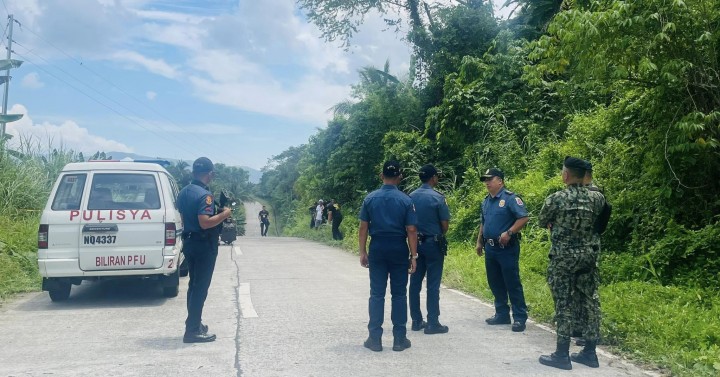News
Dela Rosa denies issuing orders to kill Leyte drug suspects
By Wilnard Bacelonia, Philippine News Agency

(Photo courtesy of Leyte Police Provincial Office)
MANILA – Senator Ronald “Bato” Dela Rosa on Friday dismissed allegations that he issued a kill order against drug suspects in Albuera, Leyte when he was still the chief of the Philippine National Police (PNP) during the Duterte administration’s war on drugs.
Lt. Col. Jovie Espenido, former police chief of Albuera, claimed that Senators Christopher Go and Dela Rosa ordered police officers to use “all means necessary” in solving the drug problem in the town.
“Very specific ang aking instruction: ‘Espenido, pumunta ka sa Albuera, Leyte para linisin mo ‘yung droga sa lugar at banggain mo ‘yung Espinosa Crime Syndicate. ‘Yung organized crime group ng Espinosa doon.’ Wala po akong instruction na patayin mo kung sinong dapat patayin at pumatay ka ng pumatay doon (My instruction was very specific: ‘Espenido, go to Albuera, Leyte to clean up the drugs in the area and confront the Espinosa Crime Syndicate.’ The organized crime group of Espinosa there),” Dela Rosa said in an interview with One News.
“Even siya mismo, sinasabi niya walang instruction na gano’n. Ang sabi lang niya, ‘na linisin ko ‘yung droga. ’Bungguin niya para matapos ‘yung problema. Pero wala akong sinabing patayin mo sinong dapat patayin. Kung interpretation niya ‘yan, sa kanya ‘yan, sa utak niya yan (Even he himself, he said there was no such instruction. He just said, ‘I’ll clean up the drugs.
‘ Confront it to end the problem. But I didn’t say kill whoever needs to be killed. If that’s his interpretation, that’s his, that’s in his mind),” he added.
Espenido’s allegations were made in a seven-page affidavit submitted to the Quad Committee of the House of Representatives on Wednesday.
He also claimed during the hearings about a reward and quota system in Duterte’s war on drugs, allegedly with funds sourced from small town lottery and Philippine Offshore Gaming Operations (POGO).
Dela Rosa also denied such a system existed.
“If you can remember, 2016 ko inilagay si Espenido noon. Hindi pa familiar ‘yang term na POGO. Naging sikat lang ang POGO itong mga later part na, itong mga nagdaang taon na maraming abuso na nangyari sa POGO. Hindi ko sinasabi na walang POGO noon pero hindi ‘yan kilala. Kung meron mang POGO noon, starting to take off siguro ‘yung panahon na ‘yun (I assigned Espenido there in 2016. The term POGO was not yet familiar. POGO only became known in these past years when many abuses happened in POGO. I’m not saying there was no POGO back then, but it was not known. If there was POGO back then, maybe that was just starting to take off),” Dela Rosa explained.
“Mamatay man ako, wala akong binibigay na monetary reward diyan sa mga may napatay kuno na drug personalities. Sabi ko sa kanila, kung meron kayong mga magandang accomplishment, ipo-promote ko kayo, kasama diyan si Espenido (I swear I did not give any monetary reward to those who are said to have killed drug personalities. I told them if you have good accomplishments, I will promote you and that included Espenido),” he added.
The PNP also expressed dismay over Espenido’s statements before House members, particularly when he described the organization as the “largest organized crime group” in the country.
PNP spokesperson Col. Jean Fajardo said Espenido’s statement was “sweeping” and affects the entire police organization.
She said that while some PNP members may stray from the right path, they do not represent the majority of dedicated and honorable police officers.





















